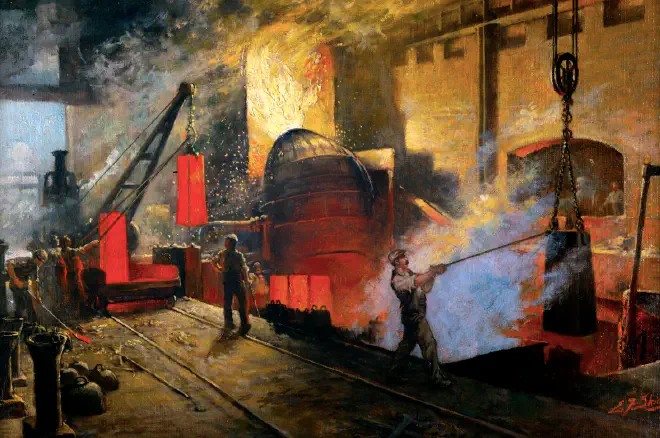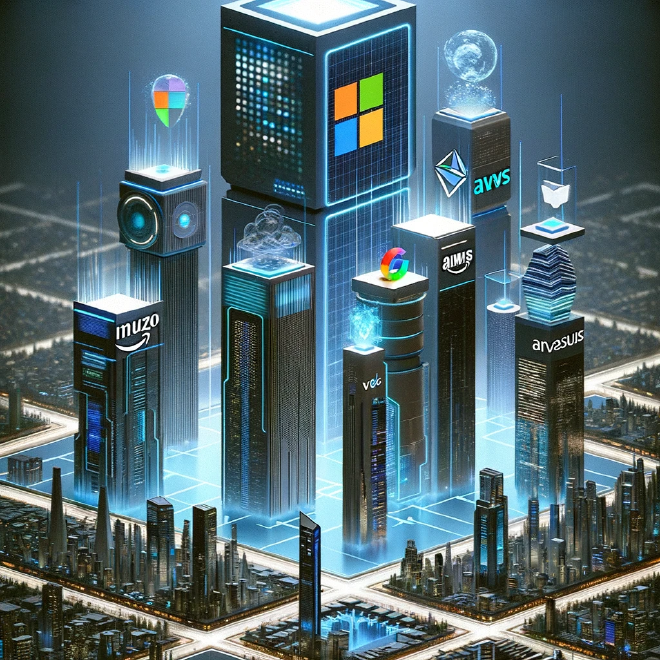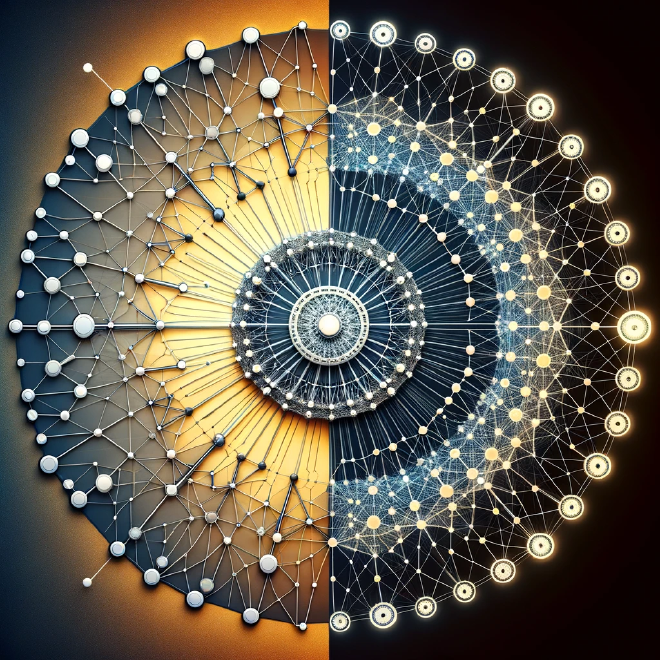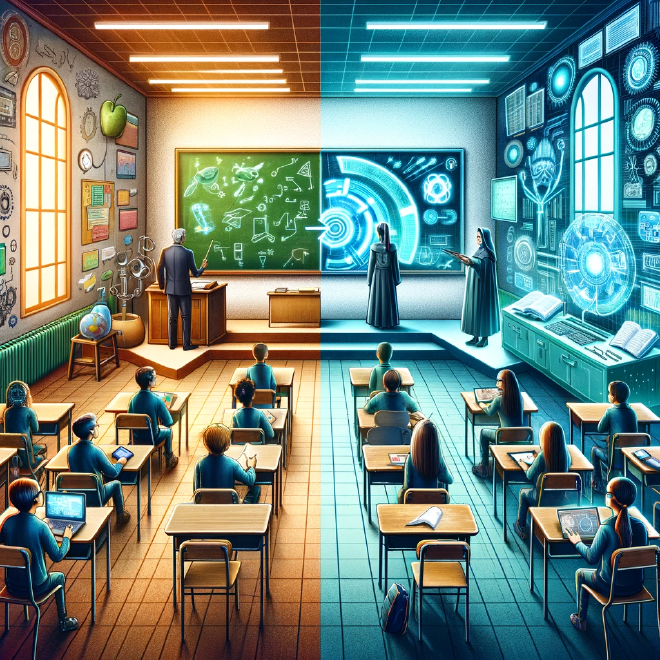The human out of the loop

Table of Contents
Human-in-the-loop (HITL) is a concept in machine learning where a model requires human interaction. But what happens if AI starts running the show with decreasing human oversight?
The rise of AI demands us to not only celebrate its innovations but also examine its impact on privacy, fairness, and the human workforce. It raises multiple questions:
- How will it affect jobs and companies?
- As AI becomes increasingly autonomous, what roles will humans play in this new landscape, and how can we ensure our meaningful involvement?
- What happens if the human is out of the loop?
This article is looking for answers to these questions.
From AI revolution to job evolution #
AI is currently impacting everything from finance to education, and marketing to everyday life. In the financial world, AI algorithms are already transforming how we invest and assess risks. Education systems are using AI for tailored learning experiences, and in marketing, AI-driven analysis of consumer behavior is digging deeper than ever.
This AI wave is exciting, no doubt, but it’s also stirring up some big questions. How will jobs change? What about ethical concerns and the widening gap between different socio-economic groups?
It’s clear: this revolution is more than just technological.
It’s about people too.
Let’s take a quick step back in time.
The Industrial Revolution #
History has a thing or two to teach us about adapting to new tech. The Industrial Revolution, despite initial job loss fears, ultimately created new industries and jobs. This transition from agricultural work to manufacturing led to socio-economic shifts, like urbanization and the need for specialized education.

It’s a pattern we’ve seen repeatedly: disruption followed by adaptation and growth. So, while AI is definitely changing the game, it’s also an opportunity for us to evolve and find new roles in this changing landscape.
Supply and demand #
Let’s consider the job market through the lens of supply and demand, a fundamental economic model.
As AI enters the workforce, it effectively increases the supply of labor by taking over tasks previously done by humans. AI can work more efficiently than humans in many areas, leading to a preference for AI in numerous industries. The productivity for workers who collaborate with AI will increase, but the overall need for human labor will be reduced. This leads to a surplus of available human labor. In economic terms, when supply outstrips demand, the value (or price) of that supply decreases.
In the job market, this could mean lower wages, as an abundance of labor competes for fewer human-required roles.
While the total economy might grow, spawning new job types and in some ways even increasing demand for human labor (much like during the Industrial Revolution), there’s a critical concern:
AI might surpass human capability in a majority of tasks.
If AI-driven labor increases more than the demand for human labor, we could see a general devaluation of human work, making it tough for wage workers to maintain their standards of living.
Simultaneously, as AI enhances efficiency, we might see an increase in the supply of goods and services, potentially leading to lower prices. This could help maintain the purchasing power of lower wages to some extent.
However, not all assets will increase in supply, such as real estate, raw materials, energy, and company shares, which could become more expensive as their value grows due to AI-driven productivity gains.
Another challenge then lies in maintaining demand in certain sectors, especially amidst widespread job disruptions. Healthcare, education, and other sectors may need to reinvent their models to stay relevant.
This situation could widen the wealth gap, favoring those who own assets over those who rely solely on wages. Therefore, the adoption of AI could just help accelerate a trend of reduced labor share of income that has been observed over the past decades.
to those who have everything, more will be given; from those who have nothing, everything will be taken.
(Matthew 25:29)
In this AI-augmented economy, financial security may increasingly hinge on asset ownership rather than wages. If machines take over most jobs, the elite controlling these technologies could amass significant wealth, while many struggle for basic needs. We are heading towards significant shifts in wealth distribution which will necessitate new economic strategies for inclusive growth.
Techno-feudalism and the rising dominance of Big Tech #
Picture this: a world where wealth and power are in the hands of a few tech giants, the new feudal lords of our time. This is the essence of techno-feudalism, as envisioned by thinkers like Yanis Varoufakis. In this scenario, capital trumps labor every time, widening the economic gap like never before. As AI steps in to automate even complex knowledge work, traditional jobs are losing their value, creating an even stronger divide between the highly skilled and everyone else.
Big Tech companies like Microsoft, Google, and AWS are not just participants in the AI-driven world. They’re more than just market leaders. They’re the architects of the platform economy, where services and products converge on digital platforms under their control.

This centralization goes beyond business strategy. It’s a redefinition of market dynamics, placing enormous power in the hands of a few. Consider OpenAI’s “app store” for experts and assistants. It’s a shining example of Big Tech flexing its muscles and a spotlight on the struggle that startups and even some big names face.
Trying to carve out your own spot in this tech jungle by creating a little AI app?
Good luck with that.
Big Tech will get inspired, make it their own, and integrate it in their app store.
In this economy, the influence of Big Tech extends beyond their products to the broader business ecosystem. They set the terms, influencing how other companies, especially those dependent on AI and cloud services, operate. This dominance creates a challenging environment for new and smaller entities to make their mark.
The rise of Big Tech is a critical narrative in our digital age. It’s about the balance between innovation and market fairness, and how the control of a few shapes the digital landscape for everyone.
Remedies #
We are facing monumental changes caused by AI. It’s clear that while there are immense opportunities and possibly great prosperity ahead of us, this revolution also has the potential to cause a lot of harm and inequality.
So, how can we prevail?
Let me share four perspectives along with proposed solutions.
1. Workplace transformation #
Gone are the days of rigid job roles and set skill sets. In this AI-driven era, the professional world demands a synergy with AI, requiring the mastery of new skills and a reimagining of the essence of work itself.
Historically, technological advancements have driven workers to specialize, focusing on increasingly narrow segments of the value chain. This trend often leads to a loss of meaningful engagement with work.
Drawing insights from La comédie (in)humaine, which critically examines modern workplace challenges, we see a pressing need for more authentic and human-centered management and leadership amidst increasing automation and process-centric work environments. This book, while reviewing the evolution of workspaces, underscores the importance of preserving humanity in an automated world.
Why is this shift crucial? As AI takes over routine tasks, leaders are now tasked with guiding their teams through complex, AI-augmented landscapes. Traditional leadership models, which often focus on hierarchical and process-oriented approaches, are inadequate for this new era. They lack the elements of adaptability, creativity, and human empathy necessary in a rapidly evolving AI-integrated environment. Leaders must now embody authenticity and charisma, essential qualities for navigating the complexities of AI integration and inspiring their teams. These traits foster a workplace culture that values human insight and creativity, ensuring AI’s role as an enhancer rather than a replacer of the human workforce.
Moreover, aligning with Auguste Comte’s three stages of humanity, we see a transition from traditional, routine-driven methods to agile, pragmatic management in response to AI advancements. This evolution is not just a matter of changing processes but a fundamental shift in how we value individuality and human-centric approaches in the workplace.
In summary, as AI redefines the work landscape, there’s a transformative opportunity to reevaluate and reconfigure leadership styles and workplace cultures. By embracing these changes, we can build forward-thinking, human-centric work environments that are ready for the future, where AI complements and enhances our human capabilities.
2. Decentralization #
Decentralization emerges as a potential counterbalance in the shadow of Big Tech’s dominance. I believe that finding an equilibrium between centralization and decentralization is crucial.
While centralization brings order, it often comes at a high cost. Overly centralized systems, be they corporate giants or state mechanisms, risk becoming inefficient and corrupt over time. This trend is evident in historical extremes like the Soviet Union, where centralization led to eventual collapse and chaos.

Decentralization, by contrast, offers robustness and agility to the entire system. It’s a breeding ground for innovation, especially true in technology, where the most groundbreaking advancements often originate from small startups. Big organizations face challenges in maintaining innovative momentum as they grow. Decentralization ensures a more dynamic, diverse AI ecosystem by empowering smaller entities and startups, offering a vibrant alternative to the monolithic approaches of large corporations.
In the context of AI, decentralization could play a crucial role. Resources like Redecentralize, Alternative Internet, and Plebbit’s Whitepaper offer insights into how decentralized models can reshape the technology sector. Cryptocurrencies and platforms like Mastodon exemplify the potential of decentralized networks, providing a stark contrast to the centralized models of current giants.
Embracing decentralization could be key to ensuring a more equitable, innovative, and resilient future.
3. Education #
The intersection of AI and education holds immense potential, especially when we consider the impact of personalized learning.
Bloom’s 2 Sigma Problem, articulated by educational psychologist Benjamin Bloom, highlights the significant advantage of one-to-one tutoring over traditional classroom education. He found that students receiving individualized instruction outperformed 98% of those in a standard classroom setting. This finding underscores the potential of AI in replicating the effectiveness of personal tutors, offering a tailored educational experience to every student, thereby potentially revolutionizing our educational paradigms.

Adam Smith, the renowned economist, emphasized the importance of education in building a strong society and economy. The relationship between education and a nation’s economic health is well-documented. Educated populations tend to have higher labor productivity, more successful technology adoption, and more effective policies for combating poverty and unemployment.
AI in education could offer an efficient and effective approach for maximizing the impact of educational investments. By enhancing learning outcomes and aligning education with market demands, AI has the potential to significantly contribute to both individual and national prosperity.
4. Identity and society #
In today’s efficiency-focused society, we are increasingly fitting into predefined roles, a trend reshaping not just our processes but also our identities. Erich Fromm observed a paradox in Western societies: despite material comfort and freedom, psychological issues have escalated.
This shift in societal values, favoring conformity and teamwork, represents a departure from the individualistic, profit-driven ethos of the past. Modern capitalism, demanding flexibility and self-responsibility, often lacks personal authority figures, leading to a homogeneity in lifestyles and consumer behavior. This uniformity, emphasizing efficiency over individuality, results in work becoming more disconnected from personal growth and meaning, diminishing our unique identities.
The current AI-driven transformation further complicates this dynamic. As AI redefines fields like scientific research and software development, exemplified by breakthroughs like AlphaFold, it challenges the essence of our individuality and the nature of human accomplishment.
What required hard work in the past can now often be achieved by accessing enough computational resources.
The focus on technological efficiency risks overshadowing intrinsic human elements. This rapid integration of AI in our lives not only reshapes our work but also influences our personal growth and unique human traits. Individuals are often perceived as interchangeable units in a system prioritizing efficiency, leading to a loss of individual identity and a tendency toward superficial relationships.
To counterbalance this, we must actively promote personal development that transcends technological skills. In today’s world where efficiency is paramount, it’s easy to dismuss arts, humanities, and social sciences.
But it’s often the economically least valuable things that bring the greatest meaning to life.
Let’s nurture creativity, empathy, and critical thinking. By fostering these uniquely human skills, we can ensure that individuals are valued for more than just their technical proficiency.
Additionally, let’s create spaces, both physical and virtual, that foster meaningful human connections. Community events, local art and cultural projects, and online platforms should emphasize real-world interactions and shared human experiences. These initiatives can help combat the isolation that technology can sometimes bring, reinforcing our sense of community and belonging.
Moreover, it helps to embrace practices of self-reflection. It’s easy to get lost in this world of constant digital content overflow. By cultivating a mindset that values introspection and present-moment awareness, we can maintain a strong sense of self and purpose in an ever-changing technological landscape.
In light of these actions, the critical reassessment of our interaction with AI becomes not just a philosophical query but a practical imperative. We should not only enjoy the benefits of technology but also conscientiously navigate its influence on our lives.
Are we simply cogs in a larger capitalist machine, or do we retain distinct identities and meaningful relationships?
By reflecting on our roles and values and taking concrete steps to promote personal development, human connection, and self-reflection, we can ensure that our journey through the AI age not only preserves but enriches our human experience, helping us maintain our unique identities and the depth of our relationships in an increasingly automated world.
Conclusion #
This article has been an exploration of our evolving role in an AI-enhanced world. Confronted with shifts in work, economy, and societal norms, maintaining our human essence is paramount. The challenge ahead is defining our place and purpose in a world reshaped by AI.
As history has shown, technological advancement often brings opportunities in its wake. In embracing AI, we must seek not only to understand and utilize this technology but also to ensure that it enriches our human experience.
This is our moment to redefine, reimagine, and reshape our future – with humanity firmly in the loop.
Call to action #
- For individuals: Embrace lifelong learning. Stay informed about AI advancements and seek to understand their implications. But above all: cultivate skills that AI cannot replicate, like creativity, empathy, and interpersonal skills.
- For organizations: Create a culture of autonomy, responsibility, trust, innovation and adaptability. Invest in employee training for the digital age, and explore ways AI can augment, not replace, human work. Nurture a human-centric workplace. Don’t just let that be a bunch of buzzwords to make your company look good. Your future and your workers’ futures depend on your ability to make that change.
- For policymakers: Develop regulations that ensure AI advancements are ethical, transparent, and inclusive. Allow startups to enter the game. Support initiatives that bridge the digital divide. Prepare society for the changes AI brings.
- For educators: Revamp educational curricula to include AI literacy and critical thinking. Leverage AI to create personalized learning experiences for individual growth.
Let’s not passively observe the transformation around us. Instead, let’s actively participate in steering this technological revolution in a direction that upholds our values, respects our diverse needs, and enhances the human experience for everyone. Together, we can build a future where AI serves as a tool for empowerment and progress, not a barrier to equality and personal fulfillment.
Join the conversation, contribute your expertise, and let’s collaboratively ensure that our journey through the AI age not only preserves, but enriches, our human experience, helping us maintain our unique identities and the depth of our relationships in an increasingly automated world.